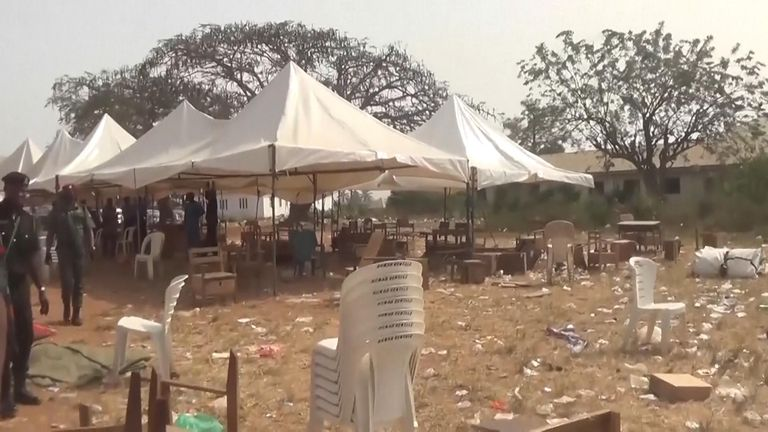The Human Rights Writers Association of Nigeria (HURIWA) has criticised the arrests of philanthropists and organisers of charitable events following recent stampedes in parts of the country.
The group described these actions as unjust and counterproductive, urging the government to instead celebrate and support those providing humanitarian assistance to vulnerable Nigerians.
HURIWA expressed concern over the arrest of Naomi Silekunola, the former wife of the Ooni of Ife, alongside seven others, following a stampede at Islamic High School in Ibadan.
The tragic incident reportedly claimed the lives of 35 children and left several others critically injured. Similarly, the association condemned attempts to blame organisers of food distribution events, such as one at Holy Trinity Catholic Church in Abuja, where 10 people lost their lives.

The group also addressed the stampede during a long-standing charitable initiative led by Chief Ernest Obiejesi, known as Obi Jackson, in Okija, Anambra State. HURIWA noted that the event, which has successfully run for over 15 years, was an unfortunate anomaly not reflective of the organiser’s consistent planning and goodwill.
HURIWA highlighted the critical role philanthropists play in a country where over 133 million people live in poverty. The association argued that such individuals dedicate their resources to assisting the needy and should not be vilified or subjected to criminal investigations.
The group attributed the desperation seen at these events to worsening economic conditions caused by inflation and rising living costs, exacerbated by policy failures like the removal of fuel subsidies. HURIWA called on the government to address the root causes of poverty and provide safety nets to reduce dependency on charity.
In its statement, signed by National Coordinator, Comrade Emmanuel Onwubiko on Monday, HURIWA demanded the immediate release of arrested philanthropists, insisting that their efforts should be recognised and celebrated rather than punished.
The group warned that criminalising humanitarian work could discourage others from offering help to those in need.


